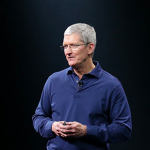Afia Asamoah, head of legal at Google Health
Age: 43
Education: Asamoah earned a bachelor’s degree from Harvard University, a J.D. from Harvard Law School and a master of public policy degree from Harvard University’s Kennedy School of Government.
About her: As head of legal at Google Health, Asamoah leads a team of nine legal professionals who support Google’s healthcare strategy. Since the start of the pandemic, she and her team have enabled Google to deliver COVID-19 related information, products, and research that support clinicians, consumers, researchers, and public health authorities to help combat COVID-19. Those efforts have included a COVID-19 microsite with resources dedicated to education and prevention of the disease, a COVID-19 self-assessment screener and two home page promotions, “Do the Five” and “Be Kind to Your Mind,” to inform and support users. Google Health has also made well-established virtual care options more visible to users searching for healthcare providers on Google and launched the Onebox on Maps to surface healthcare services and testing centers near individuals.
Prior to working at Google, Asamoah served as Special Assistant in the Office of the Commissioner at the U.S. Food and Drug Administration (FDA). She has participated in the Healthcare General Counsel Roundtable at the Harvard Petrie-Flom Center for Health Law Policy, Biotechnology and Bioethics and the Food and Drug Law Institute’s California Planning Committee.
Want to publish your own articles on DistilINFO Publications?
Send us an email, we will get in touch with you.
First job: She was a saleswoman in Macy’s shoe department.
Proudest accomplishment: “Slowing down, and being present to raise two amazing boys.”
Problem she’s most passionate about trying to solve: “Healthcare inequity. I am passionate about creating opportunities to address disparities in care and treatment for underserved communities, especially ethnically diverse populations. I believe leveraging technology is one way to do that.”
Book she would recommend: The Social Transformation of American Medicine by Paul Starr.
Advice she would give her younger self: “Step outside of your comfort zone, and give it your all — whether you succeed or fail, you will learn something. You will never please everyone, so stop trying. Trust yourself and people who have earned your trust, ignore advice from everyone else. And when your parents encourage you to keep speaking Twi at home, listen to them. You may end up, decades later, paying a tutor to refresh your knowledge (much to your chagrin).”
What she’d do with her career if it wasn’t this: “I believe that medical technology holds the promise of improving health access and quality, particularly in underserved populations and in the developing world. And lawyers will be critical players in shaping the landscape to help ensure the use of medical technology fulfills its promise — to achieve better healthcare outcomes for everyone, at a sustainable cost. If my work moves the above goal forward, I am happy.”
Advice she’d give to healthcare leaders seeking to make a real impact on the systemic problems of racism: “While this issue may seem too big for any one of us to solve, it is understandable to feel a sense of inadequacy or despair. However, we can all focus on action — and do things in our lives and the lives of others to make a difference.
“Healthcare leaders have a really important role to play in reimagining the delivery of healthcare to everyone, with equity. Leaders should be humble, seeking and including the perspectives and voices that may not currently be at the table to inform decision making. They should set a bold and measurable goal to combat racial health inequity, commit to stay the course, hold themselves and others accountable, and continue to act.
“Racial injustice and the issues underlying the national conversation did not emerge overnight. Making a ‘real impact’ to reverse the trend will take time as well. I hope leaders do not let this defining moment pass them by, and they take the dramatic steps needed to improve health, for everyone.”
Source: Fierce Healthcare







